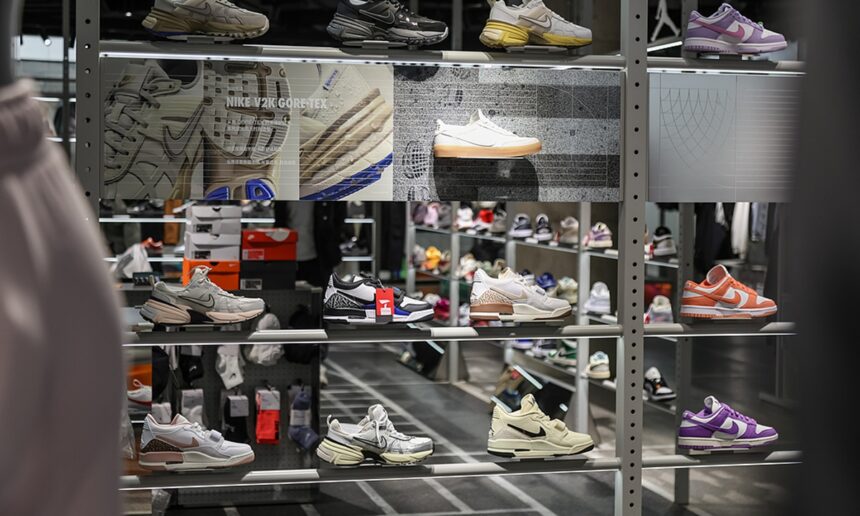A US trade association representing footwear producers has asked the current US administration to consider tariff exemptions, saying that the tariffs pose an “existential threat” to the footwear businesses and American families and cause businesses to “shutter,” according to media reports on Friday US local time.
The letter, date on Tuesday, was sent to the White House by the Footwear Distributors and Retailers of America and signed by 76 footwear brands including Nike and Adidas.
The letter said that “American footwear businesses and families face an existential threat from such substantial cost increases. Hundreds of businesses face the prospect of closure. Tens of thousands of jobs are at stake.”
It said that “the new reciprocal rates are stacked on top of the existing high footwear tariff rates, meaning that many American footwear companies will now have to pay a tariff ranging from more than 150 percent to nearly 220 percent.”
The letter meanwhile stressed that “these tariffs will not drive shoe manufacturing back to the US,” adding that “if the current situation continues, American footwear workers and consumers will suffer.”
According to a CNBC report on Friday local time, Adidas previously warned this week that tariffs would lead to higher prices for American consumers. In late March, before the specific “reciprocal tariff” rates were announced, Nike’s finance chief said global levies and economic uncertainty would result in lower current-quarter sales, the report said.
The US Chamber of Commerce previously also urged the current US administration to immediately implement a “tariff exclusion process” in order to keep the US economy from falling into a recession and inflicting “irreparable harm” on small businesses, CNBC reported separately on Thursday.
The massive business lobbying group asked key US trade officials to automatically lift tariffs on all small business importers and on all products that “cannot be produced in the US” or are not domestically available, per the Thursday report, citing a letter obtained by CNBC.













